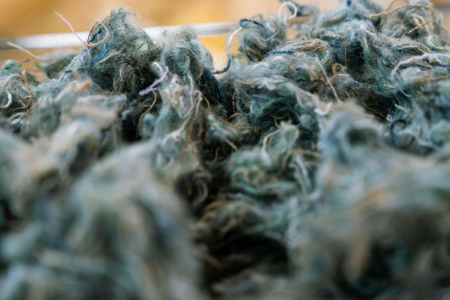

Re-Born Platform- Waste Management
Isreal has launched its first circular economy platform in textiles called Re-Born Textiles. It the first circular management systems for textile waste.
Revital Nadiv and Viktoria Kanar have combined innovation and sustainable to present an Urban solution for textile waste that can be traced to landfills, incineration or shipments from other countries.
Isreal has finally recognised the need to make a change in the fashion industry. Their means of making this change has come from innovative solutions. Israel is committed to the 2030 Sustainable Development Goals agenda put forth by the United Nations. They are also committed to promote and advance to a circular economy, sustainable cities, responsible consumption and production, and climate action.
The Re-Born textile program is a flagship project that offers solutions based on the three pillar system. The three pillars are discarded clothes in new/almost new condition are returned to retail (Re-Use), discarded clothes and textiles are upcycled into new textile products with the help of new technology (Re-Make) and clothes and textiles are recycled and used for other industries, such as construction and the automobile industry (Re-Cycle).
The pilot programme will soon commence in Kfar Saba, which has its own sustainability center, Kipod. Over 100 women throughout the country have taken part in a course to learn about the issues and challenges to find solutions for the fashion and textile industry. They have also acquired knowledge of professional textile sorting and management and secondhand marketing.
Raffi Saar stated that in order to promote issues of this nature, they had to work with research and academic bodies and as a part of international collaborations, to examine and implement innovative and diverse solutions for the separation and treatment of waste. He added that at the same time they are working to strengthen the information channels in front of the residents regarding changing consumption habits and separating waste.
He believes that the corporation of all of them together could bring about total social change, for the future of our children and the planet.
The Ambassador, Dr Susanne Wasum-Rainer, stated that promoting sustainability and a greener economy to mitigate climate change was one of the core priorities of Germany’s European Union council presidency. She stated that they believed that the current health crisis held an enormous opportunity to change things towards increased sustainability, including improving the waste management of the textile industry. She concluded that they felt the new Re-Born project would help them make the world a greener place.
Porcher Industries will present a cockpit developed in collaboration with Airbus at the Mobility Planet showcase during the JEC World…
eVent Fabrics has introduced its latest innovation, stormburstLT for exceptional breathability, this ultralight laminate expands eVent’s existing lineup.
Mimaki Europe, a leading manufacturer of industrial inkjet printers 3D printers, has launched two new direct-to-textile printers, the Tx330-1800 and…
Ahlstrom has been selected as a finalist in the IDEA 2025 Awards in the Nonwoven Product category for its BioProtect…
Loop Industries, a technology company based in Montreal, is focused on developing 100% textile-to-textile PET polyester fibers and PET plastics…
MycoWorks, the company behind Reishi, a high-quality mycelium-based leather alternative, has made significant progress by launching an e-commerce platform.